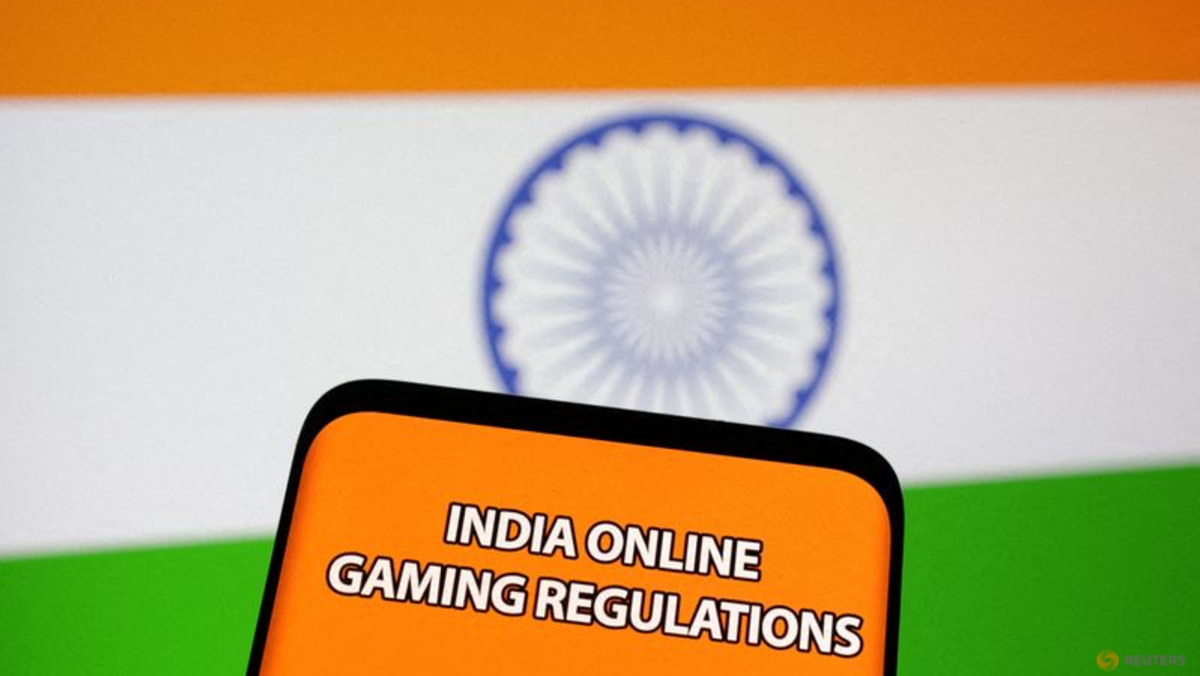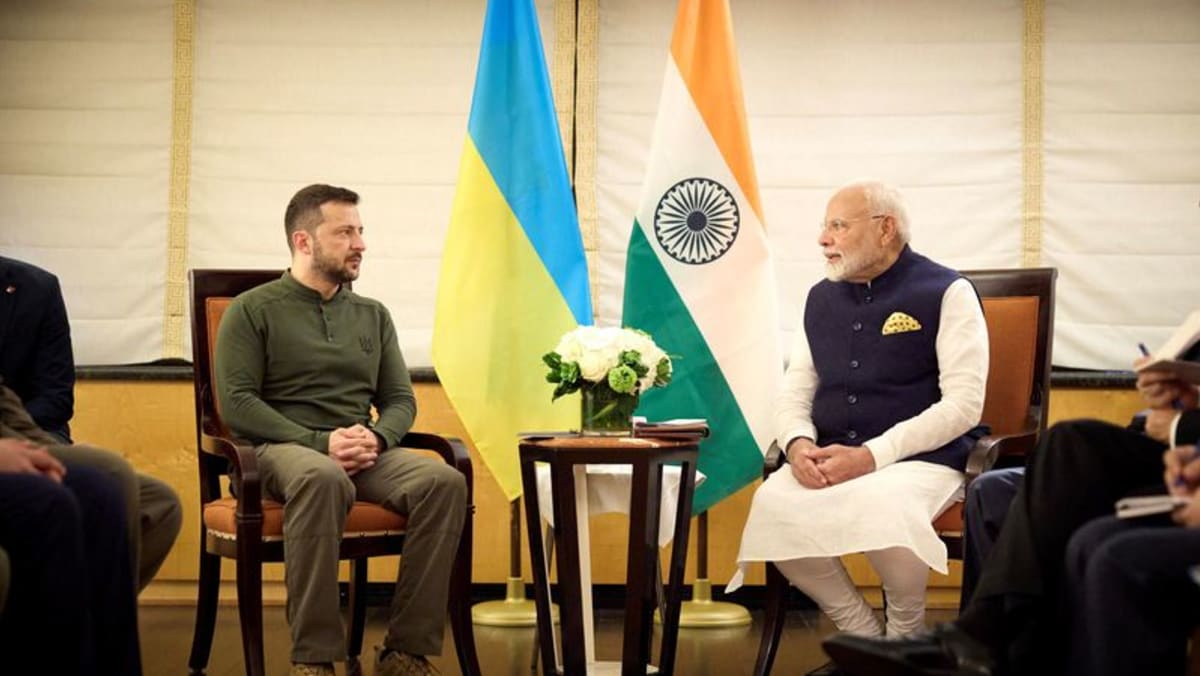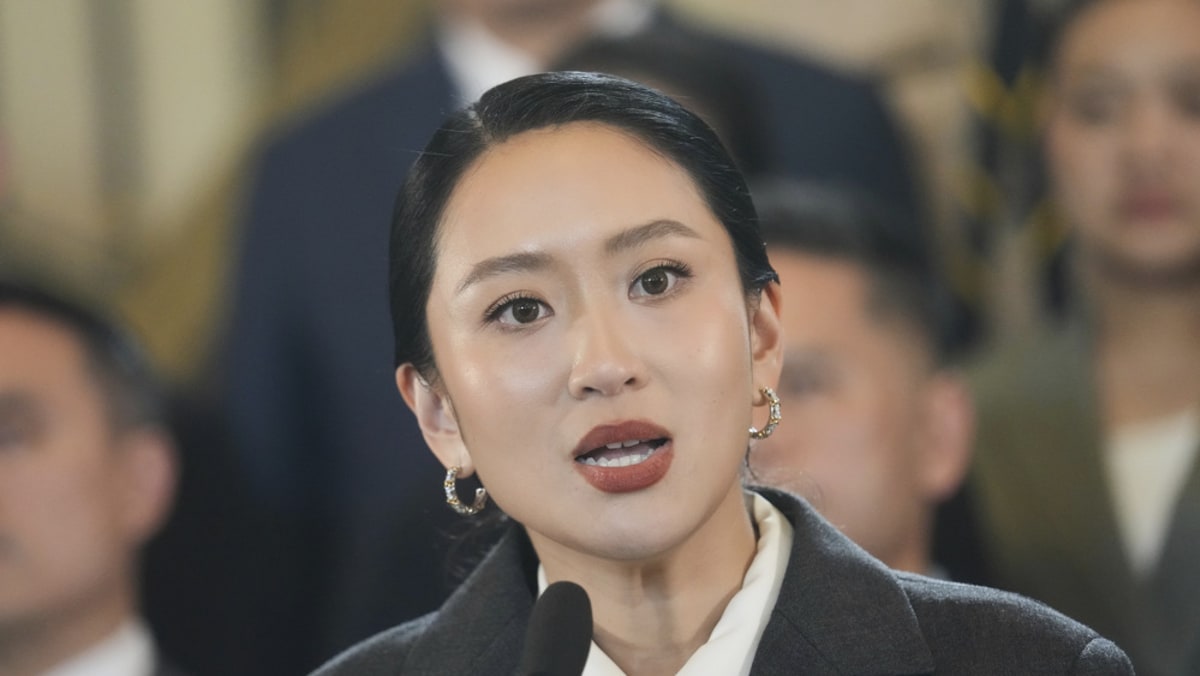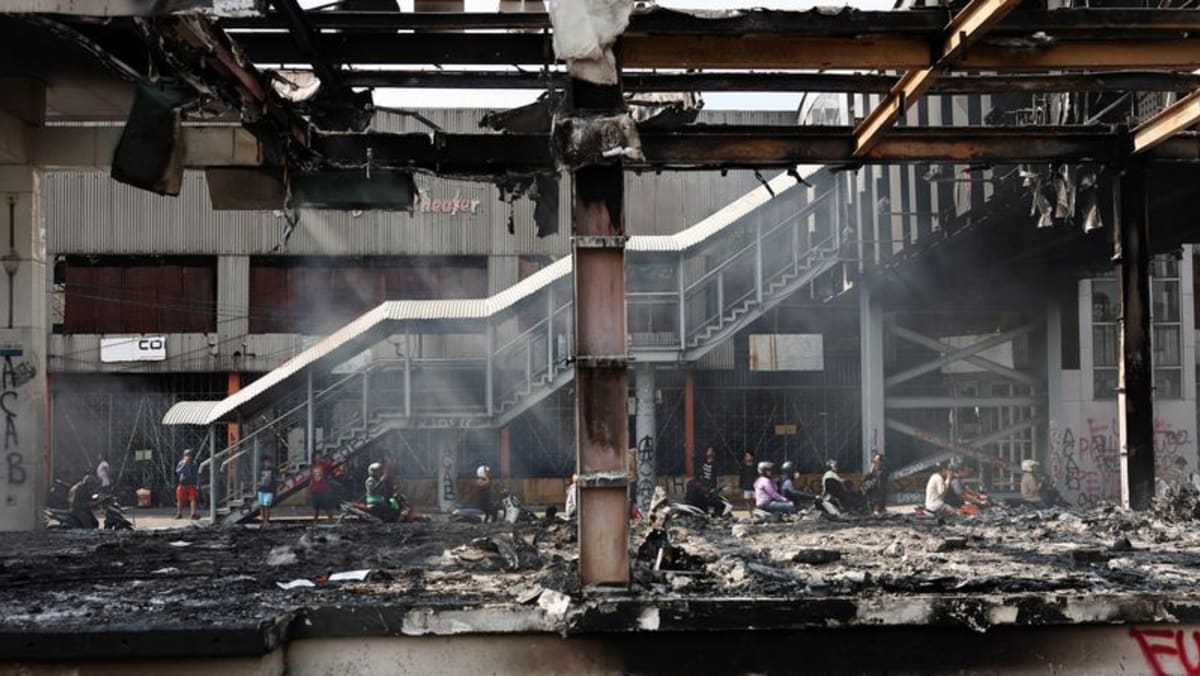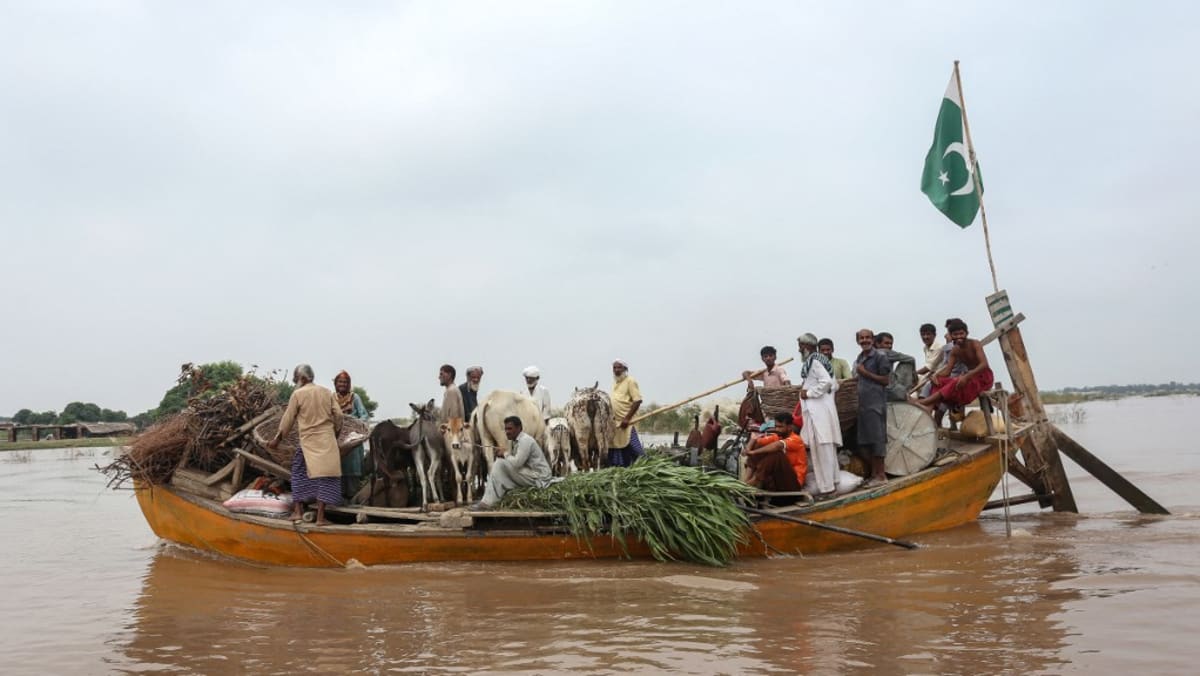JAKARTA: Indonesian political parties have agreed to revoke a number of perks and privileges for parliamentarians, President Prabowo Subianto said on Sunday (Aug 31), following protests and rioting across the Southeast Asian country.
Widespread anti-government protests and rioting over issues such as extra pay for parliamentarians and housing allowances have rocked Indonesia, resulting in at least five deaths in recent days.
That frustration boiled over after police violence claimed the life of a ride-hailing driver during a protest on Thursday prompting angry crowds to target police stations and the national parliament building.
Angry demonstrators have looted the homes of senior officials, torched regional parliament buildings and overwhelmed local security in several cities over the weekend.
Prabowo was addressing the nation in a live broadcast from the State Palace in Central Jakarta, flanked by party leaders including PDI-P chair Megawati Soekarnoputri.
He acknowledged the scale of public anger, pledged to act on lawmakers’ perks, and promised that the government would listen to citizens’ demands while maintaining law and order.
Prabowo said party leaders had “taken firm action” against their members of parliament, with sanctions to take effect from Monday.
“The leadership of the House has conveyed that a number of policies will be revoked, including the size of allowances for members and a moratorium on overseas work visits,” he said.
Party chiefs had also agreed to strip errant lawmakers of their seats, with Prabowo stressing that “members of the House must always be sensitive and side with the interests of the people”.
The president underlined that freedom of expression would be respected.
“The right to peaceful assembly must be protected,” Prabowo said, citing Indonesia’s law on demonstrations and international conventions. But he warned that violence — including looting and the destruction of facilities — would not be tolerated.
“If there are anarchic activities destabilising the state, damaging or burning public facilities, looting homes or institutions, this is a violation of the law. The state must be present to protect its people.”
Prabowo added that “signs of subversion and terrorism” had begun to appear as he ordered the police and military “to take the firmest possible action” against destruction of public facilities, looting of private homes and attacks on economic centres.
At the same time, Prabowo called for dialogue, instructing parliament to invite students, community figures and civil society leaders to convey their aspirations directly.
“We assure you that your voices will be heard and followed up,” he said, urging ministries and agencies to receive delegations and consider proposals for reform.
He also appealed for calm.
“I urge citizens to trust the government,” he said, adding that all political parties were committed to fighting for the interests of the people, including “the most vulnerable and disadvantaged.”
Prabowo warned families not to join the unrest and cautioned against groups that “do not want Indonesia to prosper and rise.”
